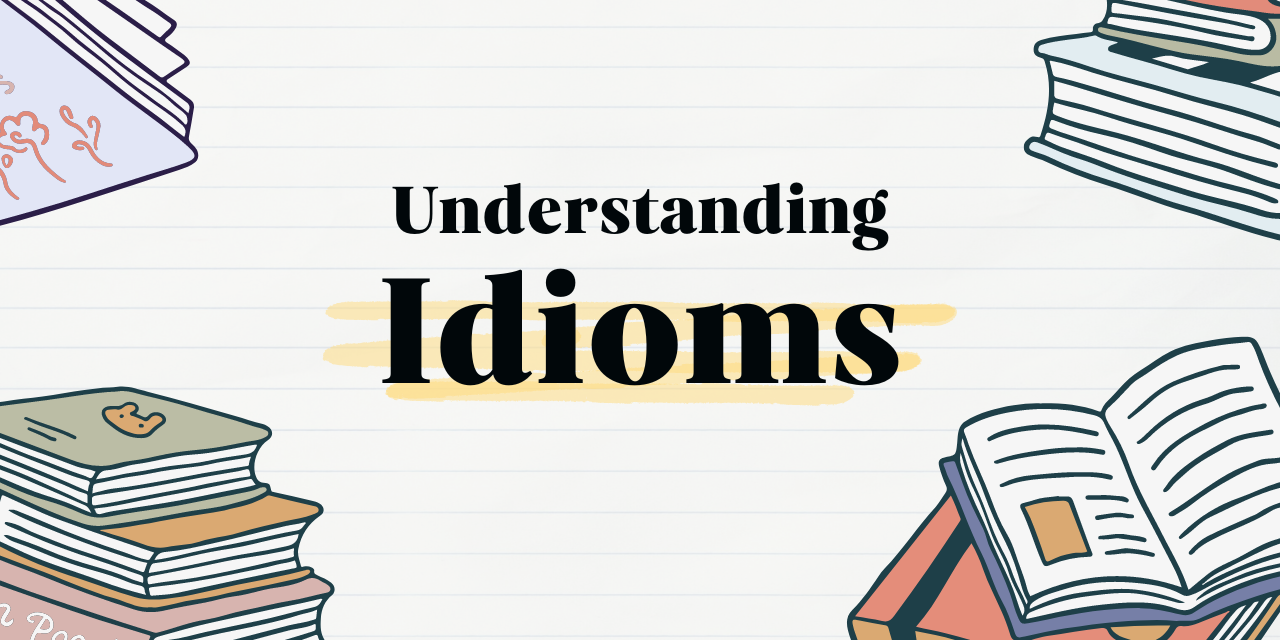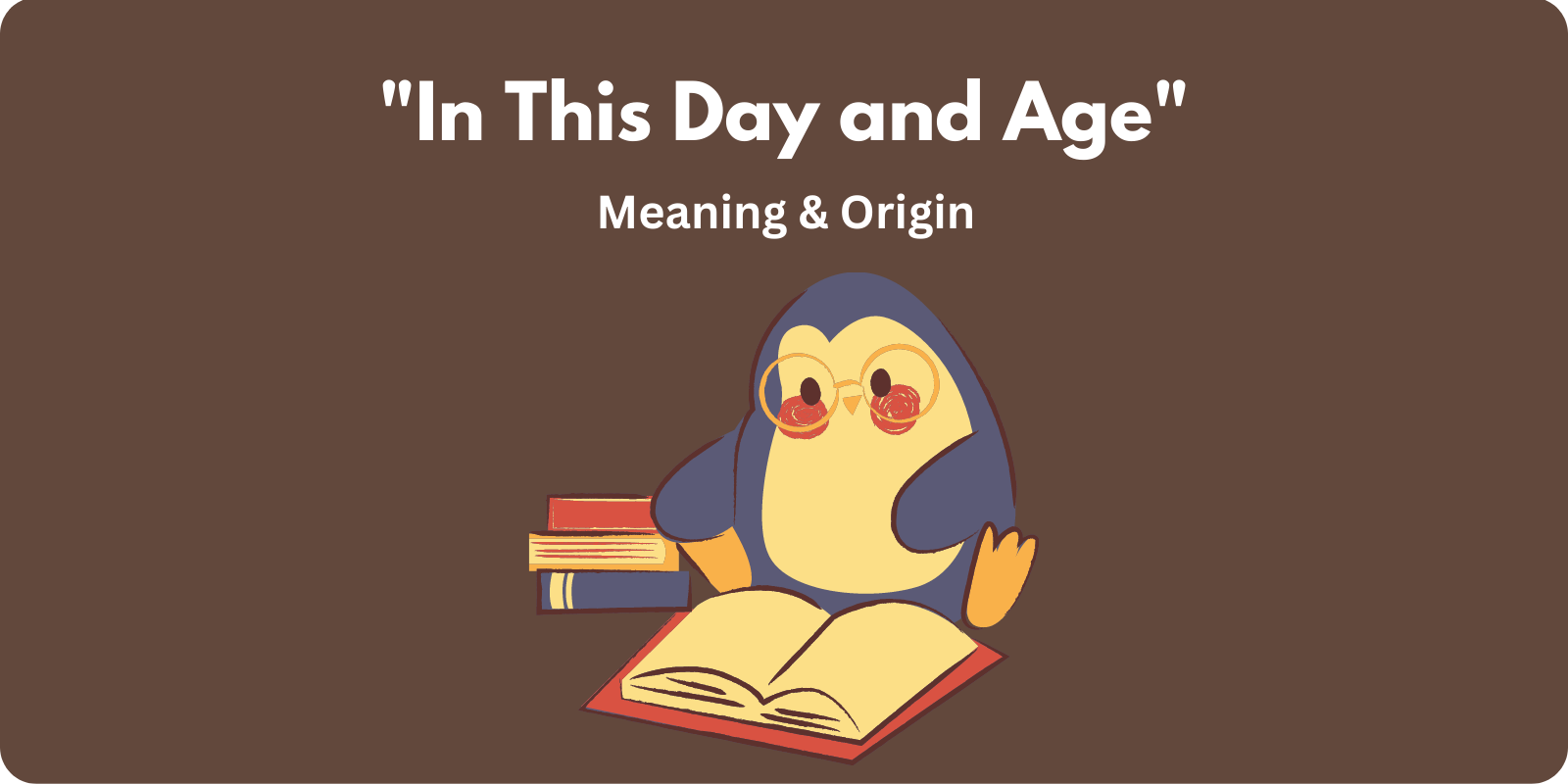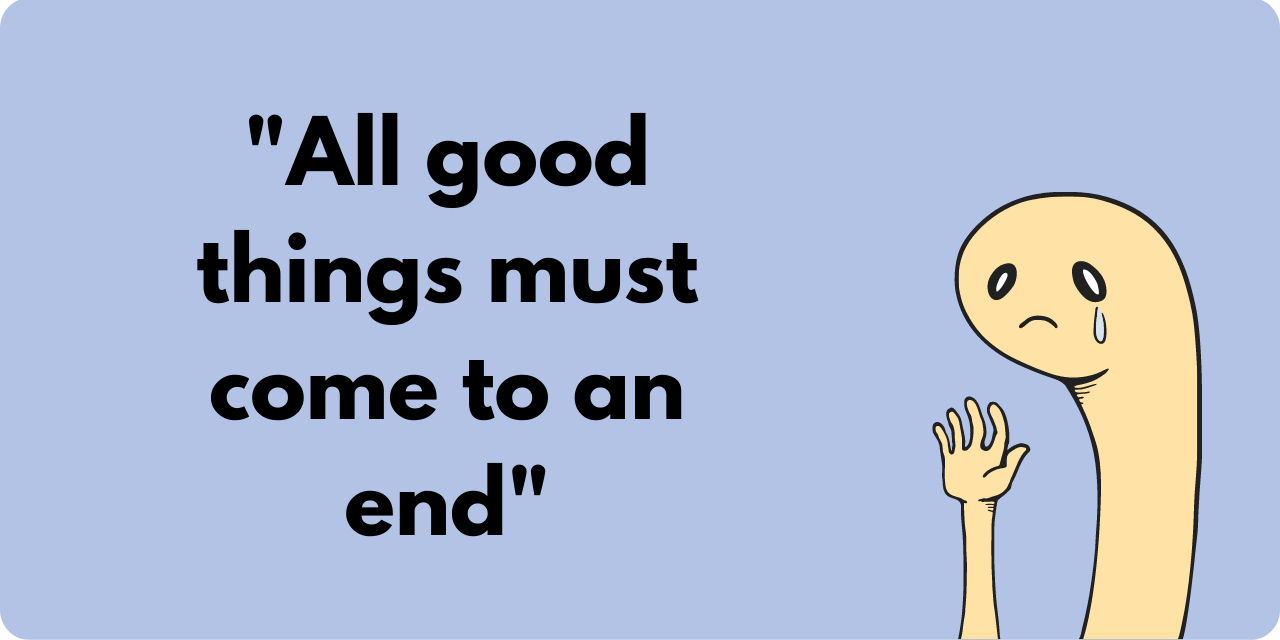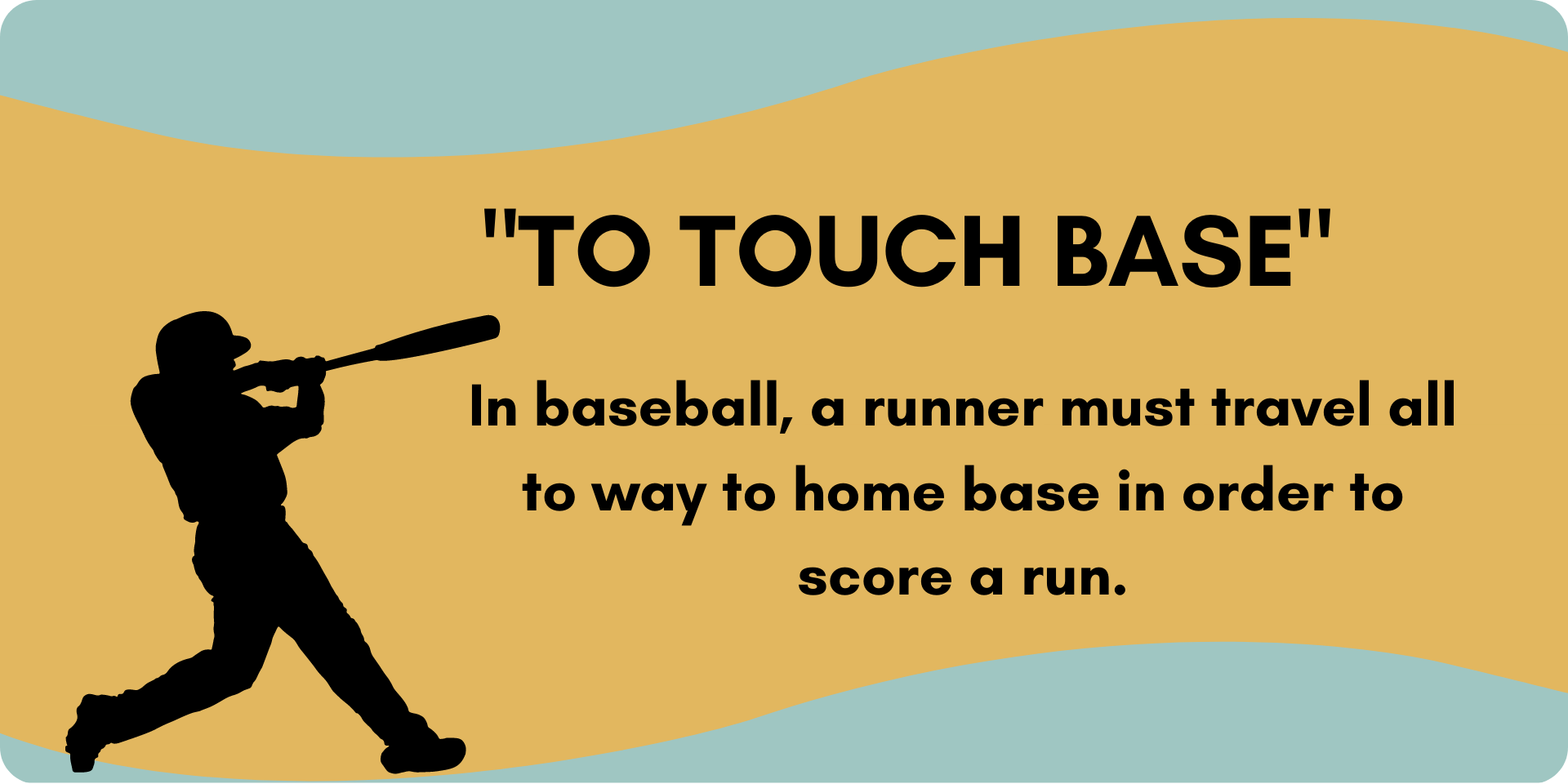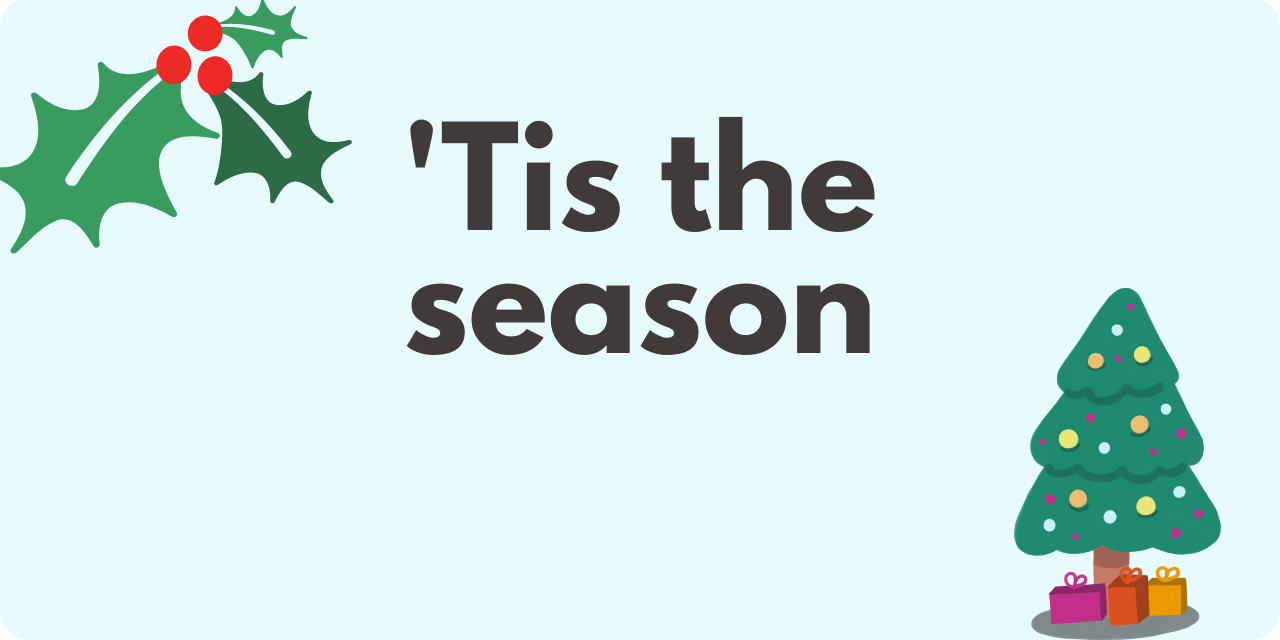The meaning of duly noted is: “properly recorded” or “acknowledged.” The first word, duly is an adverb that corresponds to the adjective due. To “note” something means to record it. For instance, a secretary might make sure that the meeting minutes are duly noted and written down in the proper way.
When used in official context, the phrase duly noted signified that the things that is being noted will indeed get the appropriate consideration in due time, when appropriate. However, the phrase is sometimes used ironically (as you will see below), often dismissing something that, while being true, is irrelevant.
Example of Duly Noted
Let’s take a look at this phrase in pop culture:
Bart Simpson’s teacher, Mrs. Krabappel, demonstrates the use of “duly noted” quite well. After Homer makes a promise to Bart that he can go to Kamp Krusty if he earns a C average on his report card, Bart is understandably anxious to know how he did. In this exchange he tries to convince his teacher to document high grades:
Bart: Mrs. Krabappel, in figuring out my final grades, I hope you’ll note that all of my textbooks are being returned in excellent condition. In some cases, still in their original wrappings! Mrs. Krabappel: Duly noted.
Obviously, Mrs. Krabappel didn’t deliberately write down Bart’s silly observation.
Here’s an example of “duly noted” in this sentence found in an article written about a county tax petition:
[The petitioners] objected to reviewing all the signatures in the petition, protested that county clerk employees are not handwriting experts and said none of the employees should be involved because they are members of the AFSCME union. “The objection was duly noted and we began,” Ming-Mendoza said.
People mostly use “duly noted” as a simple acknowledgment of opinion. But sometimes the meaning of duly noted is “to notice something” or “to call attention to it.” For example, this quote from Deseret News mentions a coach observing the positive outlook of one particular player:
It’s a contribution duly noted by head coach Shawn Olmstead, who gets a bit emotional when talking about the contributions made by his less-heralded group of seniors.
Does “Duly Noted” Sound Rude?
Do you think it is rude to use sarcasm? If you use duly noted irreverently, some people may think it’s rude. Yes, Mrs. Krabappel was acknowledging the immaculate condition of Bart’s textbooks but she wasn’t giving him a commendation for it. She said “duly noted,” which means that what he said didn’t warrant any attention. (If you wondered whether Bart’s pristine study material gained him any favor with his teacher then you probably aren’t a fan of the show. He missed his C average by a long shot.)
An exchange between two characters in Identity, a novel by Ingrid Thoft, characterizes this propensity to use “duly noted” as a fashion of sarcasm:
“Your concern is duly noted.” “‘Duly noted’ normally means ‘heard and ignored.” “Well, ‘heard’ is a start, right?”
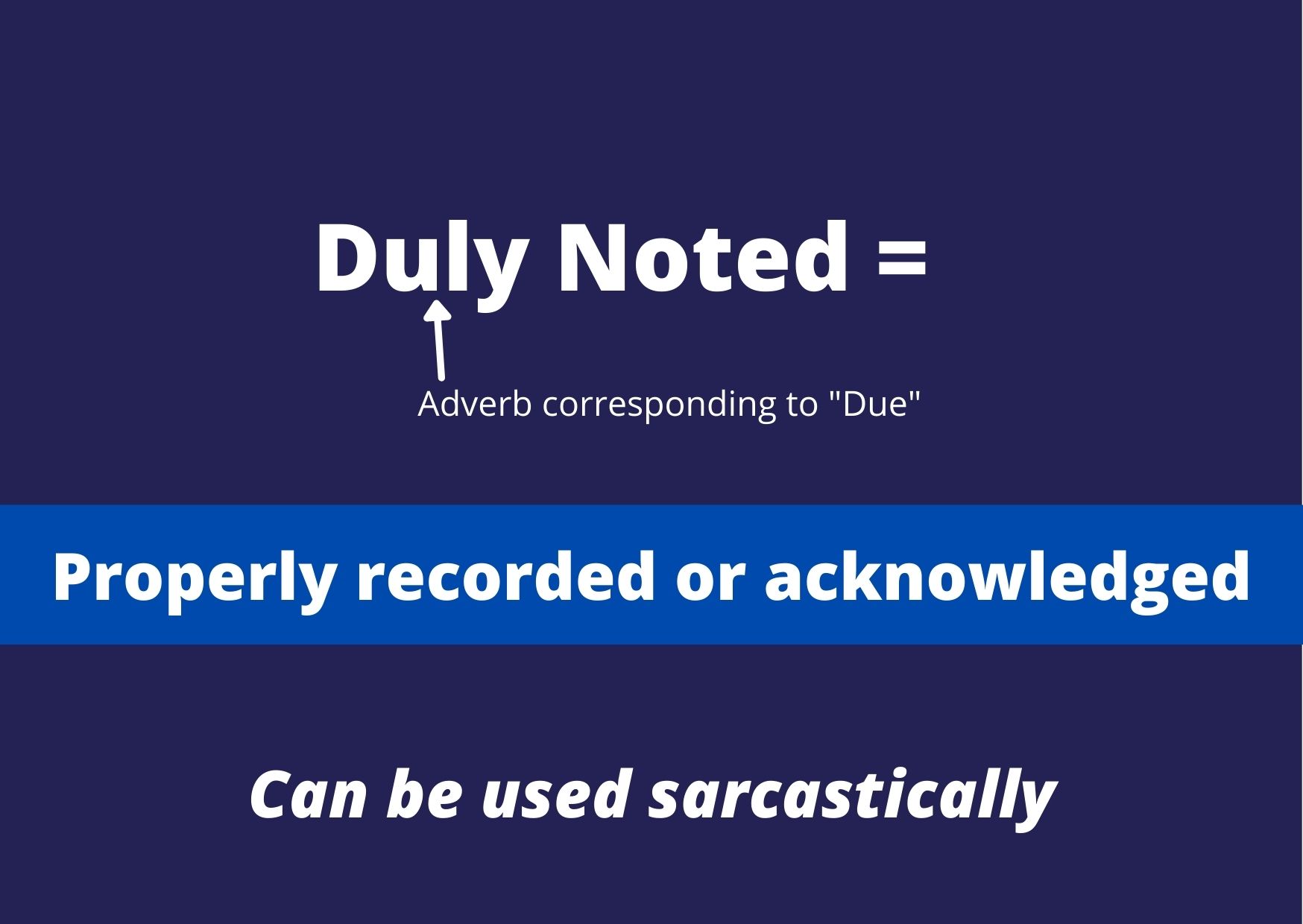
Don’t Misunderstand Duly Noted
A few words look a lot like “duly” so you’ll have to be careful when you write it. For instance, adding a second L accidentally would make “dully noted!” Dully means slowly, lethargically, or dimly . . . In a professional context, you wouldn’t mention to your boss that you dimly acknowledged what she said! You also do not want to confuse duly with dually—this word means “made of two people or parts, in a double capacity.” Because the root of duly is due, some people accidentally add an E to make duely, and that is not even a word.
You now have a go-to phrase when suggestions or requests come your way. You can utilize “duly noted” to say all of these things: I wrote what you just said in the appropriate record. I acknowledge your opinion. I heard you but I don’t care. How will you use “duly noted”?

